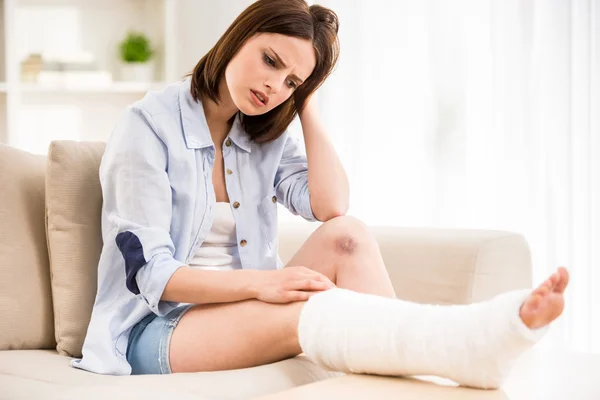Almost everyone will experience some kind of serious injury at a point in their life. Of course, some people are simply more unlucky than others and may experience injuries more often. This can often be due to someone’s job requiring that they place themselves in danger, or because they practice a dangerous sport.
That being said, injuries can also just be due to a freak occurrence. No matter how you got injured, it’s important to take proper care of your injury so that you can fully recover as soon as possible.
1. See a physiotherapist
One of the most effective ways of helping you to recover from an injury sooner is to visit a physiotherapist. Your body will be weak after an injury, and the muscles around your injured area will continue to weaken if you don’t do the correct exercises to help strengthen them
You can’t simply do any exercise you want, either. You need to do exercises that build strength but won’t injure you even more, which is why you need to visit a physiotherapist. They will be able to help you take the steps you need to reach your recovery faster. Have a look at Movement First Physiotherapy to see what they can offer you.
2. Improve your diet
While it may sound odd that your diet can impact how quickly you recover from an injury, it is true. As mentioned, our bodies tend to be very weak after an injury. But to recover, your body needs strength.
One way to achieve this is to fuel your body by eating plenty of foods that will give you the energy and nutrients needed to get your body healthy again. Besides, implementing a healthy diet has so many benefits that there’s no reason why you shouldn’t make a few healthy changes. Use these healthier meal options to guide you if you don’t know where to start.
3. Medication
Your doctor will most likely prescribe some medication for you to help with the side effects of your injury, and it’s vital that you take them. Setting a reminder on your phone is a good idea since many people feel groggy after an injury and thus forget to take their medication.
However, you should never take more than what is prescribed to you. If you feel that the medication isn’t working, contact your doctor and ask them to prescribe alternative medication for you. Don’t simply drink more of the same medicine in the hopes of it working. You also shouldn’t rely solely on medication to help you heal – you need to be doing everything you can to recover.
4. Rest
Many people are of the assumption that resting is the best medicine. And it’s true – your body will do a lot of its recovering while you are resting.
As tempting as it may be to immediately jump back into your normal daily routine, that may make your injuries worse. Rather spend enough time resting so that your body can recover, even if it does frustrate you.
People on bed rest may find that they get bored very quickly, so it’s a good idea to have a few things to keep you busy.
5. Look after your mental health
Once again, you might be wondering how your mental health can affect your recovery from an injury. The truth is that the two go hand-in-hand. Many injuries will affect someone’s mental health, not just their physical health. This means that people are often hopeless and don’t even want to put in the effort needed for them to get better.
Working on your mental health is important – in fact, it’s just as important as working on your physical health. If your mental health improves, you might be shocked at how much your injury will improve as well.
Conclusion
While an injury can be a horrible thing to deal with and affect many aspects of your life, there are ways to speed up your recovery. Of course, before you make any decisions regarding your health or your injury, you need to talk to your healthcare provider first.
You shouldn’t do anything harmful in the hopes of speeding up your recovery. It might be frustrating to have to wait for your injury to heal, but the body is amazing; when given time, it can do amazing things, so give it the time it needs.
Rest, put in the effort, and work alongside your medical team, and you’ll be on the right track to recovery.








